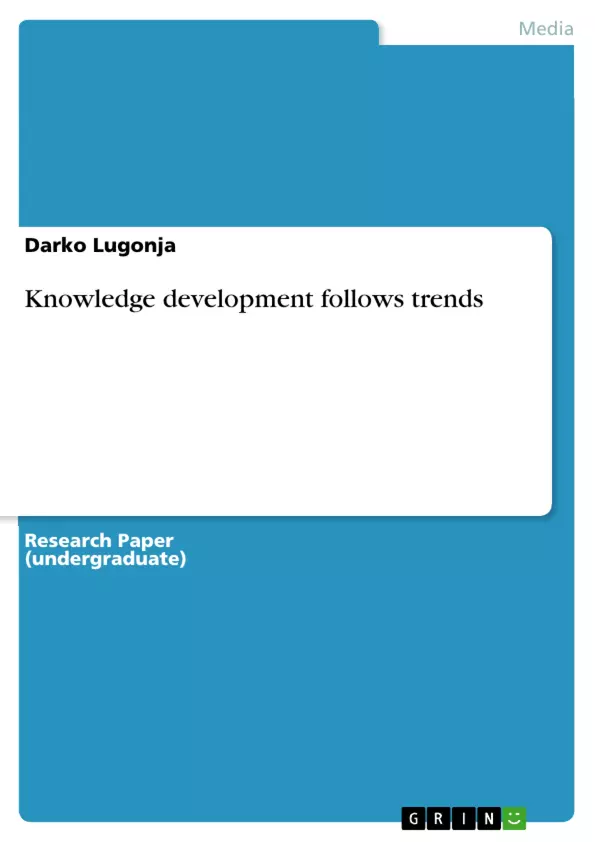Contemporary information, knowledge and scientific results acquiring, developing and sharing are at the crossroads. New generation Internet and networking technology are not only media and measures for successful information and knowledge sharing, but also a platform for new generation knowledge building, further networking and opening new areas for research and development. Todays and future scholars and students are expected to be experts not only in their own scientific area. In order to ensure an appropriate, timely and targeted communication, they need to act also as networkers and science developers in a new and ever changing environment. Network is the most appropriate channel, resource, model and technology, offering the growing knowledge development potential.
Keywords: information, knowledge, network, Internet, technology, resource, development
Table of Contents
- Introduction
- Knowledge and Science
- Science Importance
Objectives and Key Themes
This paper explores the growing importance of knowledge and networks in a post-transitional world. It examines the role of networks in facilitating information sharing, communication, and knowledge development, particularly within the context of the Internet and its impact on science and knowledge.
- The shift from material resources to knowledge as the primary resource in a changing world.
- The role of networks, particularly the Internet, in facilitating knowledge sharing and development.
- The impact of online communication on the creation and dissemination of scientific knowledge.
- The challenges and opportunities associated with the proliferation of information and knowledge in a networked environment.
- The importance of ensuring accuracy and reliability in online knowledge resources.
Chapter Summaries
The paper begins by outlining the increasing significance of knowledge in a post-transitional world, highlighting the shift from material resources to knowledge as the key driving force. It then explores the role of networks in facilitating information sharing, communication, and knowledge development, specifically referencing the rise of the Internet and its impact on scientific progress. The paper acknowledges the potential downsides of network-based knowledge sharing, such as shallowness and the spread of misinformation, but argues that these challenges can be overcome by prioritizing accuracy, reliability, and the use of verified data.
The chapter on "Science Importance" delves into the evolution of resource priorities, illustrating how land was paramount in the agricultural age, capital in the industrial age, and knowledge in the contemporary era. The chapter discusses the need for a critical approach to online information and knowledge resources, emphasizing the importance of evaluating information sources and ensuring their reliability.
Keywords
This paper focuses on key concepts such as knowledge, information, networks, technology, resources, and development. It examines the role of networks, particularly the Internet, in facilitating knowledge sharing and development, highlighting the importance of accuracy and reliability in online knowledge resources.
Frequently Asked Questions
What is the central theme of this paper on knowledge development?
The paper explores how contemporary knowledge and scientific results are developed and shared through networks and the Internet in a post-transitional world.
How has the primary resource of society changed over time?
The paper illustrates a shift from land (agricultural age) to capital (industrial age) and finally to knowledge as the key resource in the contemporary era.
What are the potential downsides of network-based knowledge sharing?
The author acknowledges challenges like informational shallowness and the spread of misinformation, emphasizing the need for verified and reliable data.
What is expected of future scholars and students in this environment?
They are expected to be not only subject experts but also skilled networkers and science developers who can navigate an ever-changing digital landscape.
Why is online communication vital for scientific progress today?
Networks offer the most appropriate channels for timely and targeted communication, significantly increasing the potential for rapid knowledge development.
- Citar trabajo
- MBA Darko Lugonja (Autor), 2012, Knowledge development follows trends, Múnich, GRIN Verlag, https://www.grin.com/document/201250



